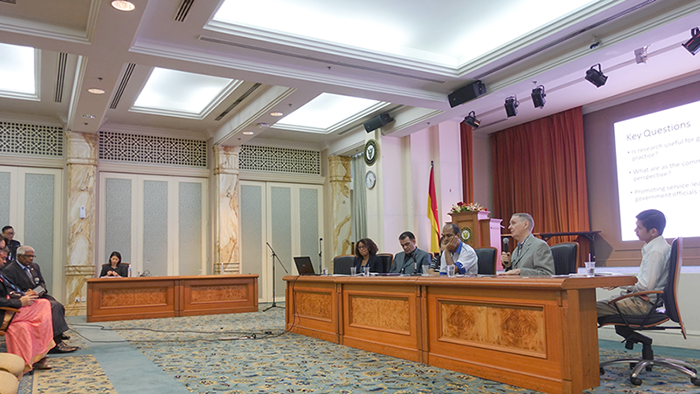Events Calendar

The question of indigenous community resilience towards various global challenges such as economic and environmental has caught the attention of the world, especially amongst researchers in universities. Bearing the growing interest in this area in mind, the Institute of Social Informatics and Technological Innovations (ISITI) recently co-organised the forum on “University – Community Partnership for Indigenous Community Resilience” at Wisma Bapa Malaysia, Kuching.
This forum, which was a joint effort by Sarawak Development Institute (SDI) and ISITI together with Cornell University, highlights on the University-Community partnership that ISITI, UNIMAS and Cornell have shared with the Long Lamai community members. The forum also brought to attention the efforts that both universities and community have shared in addressing the impacts of climate change through the implementation of the Global Citizenship and Sustainability (GCS) service learning programme.
One of the primary benefits of the GCS service learning programme initiated by UNIMAS and Cornell University is that students are able to benefit from the integration of meaningful community service with instruction and reflection to enrich their own learning experiences. Through this programme, the students were given the opportunity to work in partnership with the indigenous communities to enhance community resilience in the tropical rain-forested areas that are regarded as highly vulnerable to climate change. A group of students from UNIMAS and Cornell University made their first visit to Long Lamai and Bario in 2016, whereby they were able to discuss the concerns and ways of overcoming these challenges with the communities involved. They were also asked to reflect on their experiences and how these experiences allowed them to gain deeper insight on how they can bring about positive changes to the communities during their two-week stay at the villages.
Apart from that, the forum also gave rise to a highly informative discussion session between the panelists and members of the audience who were present that day. Some of the main issues that were brought to attention included the need to increase research on the benefits of working together with communities, the inclusion of indigenous communities when formulating policies, community engagement as well as the issue of urban migration.
The forum also served as a platform to provide insight on how University- Community partnerships can contribute to the goals for resilience-oriented development among underserved communities, the benefits of service learning not only for the students but also members of academia and also how to stimulate research that can have real-world impact beyond academia.

